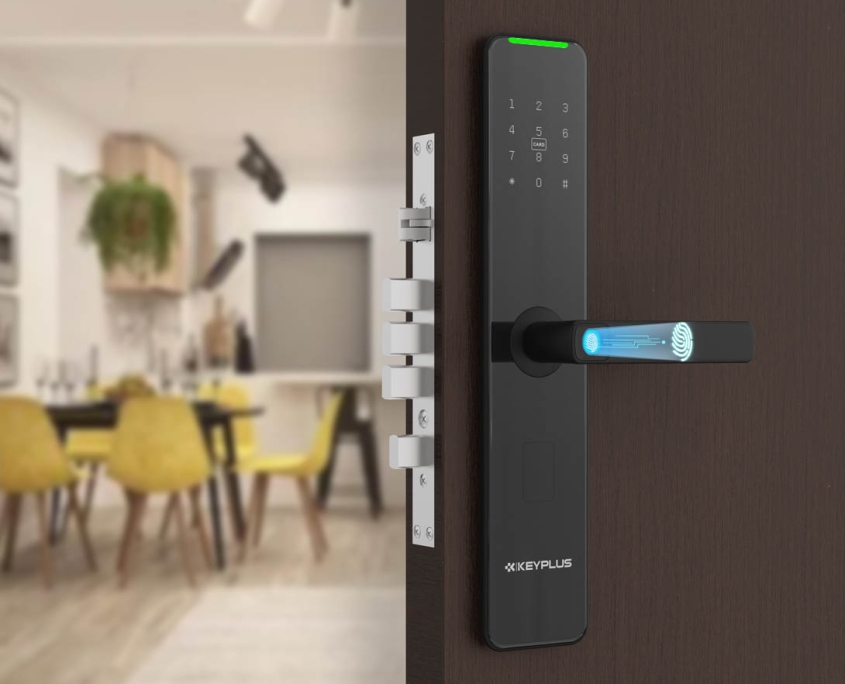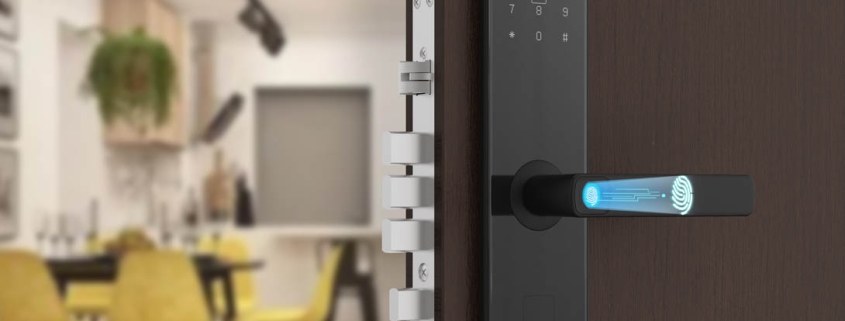Are Fingerprint Door Locks Any Good?
In recent years, fingerprint door locks have gained popularity as a high-tech alternative to traditional keys and keypads. But are they truly reliable, secure, and worth the investment? This guide will break down everything you need to know about fingerprint door locks, including their pros and cons, security features, and whether they’re the right choice for your home.
What Are Fingerprint Door Locks?
Fingerprint door locks, also known as biometric door locks, use your unique fingerprint to grant access instead of a physical key or passcode. These locks scan and store your fingerprint data, allowing only authorized users to unlock the door. Many models also include backup entry methods, such as:
- PIN codes (for when fingerprints don’t scan properly)
- RFID keycards or fobs (as a secondary access method)
- Smartphone Bluetooth or Wi-Fi connectivity (for remote access)
Pros of Fingerprint Door Locks
1. No More Lost or Stolen Keys
How many times have you misplaced your keys or worried about a spare key falling into the wrong hands? With a fingerprint lock, you’ll never need to hide a spare key under the doormat again. Only registered fingerprints can unlock the door, reducing the risk of unauthorized entry.
2. Convenient and Fast Access
No more fumbling for keys in the dark or forgetting combinations. A quick touch of your finger is all it takes to unlock the door—ideal for when your hands are full with groceries or kids.
3. High Security (When Properly Installed)
Unlike traditional locks that can be picked or bumped, fingerprint locks are much harder to bypass. Most high-quality models use advanced encryption to store fingerprint data securely, preventing hacking attempts.
4. Customizable User Access
You can add or remove users easily—great for families, Airbnb hosts, or businesses. If someone no longer needs access (like a former tenant or employee), you can delete their fingerprint instantly.
5. Smart Home Integration
Many fingerprint locks work with smart home systems like Amazon Alexa, Google Assistant, or Apple HomeKit. This allows for remote monitoring, temporary guest access, and automatic locking/unlocking based on routines.

Cons of Fingerprint Door Locks
1. Potential for False Rejections
Fingerprint scanners aren’t perfect. If your fingers are wet, dirty, or damaged, the sensor might not recognize you. Most locks offer backup entry methods (like a PIN), but this can be frustrating in emergencies.
2. Power Dependency
Since fingerprint locks run on batteries, you’ll need to replace them periodically (typically every 6-12 months). Some models have low-battery warnings, and a few offer emergency power via a 9V battery or USB port.
3. Higher Upfront Cost
A good fingerprint lock costs 100–300, compared to 20–50 for a traditional deadbolt. However, many homeowners find the convenience and security worth the investment.
4. Privacy Concerns
Some people worry about fingerprint data being hacked or stored improperly. Reputable brands use local encryption (not cloud storage) to protect biometric data, but it’s important to research before buying.
Are Fingerprint Locks Secure?
Yes—if you buy a high-quality model. Here’s what to look for:
- Anti-spoofing technology (prevents fake fingerprints from working)
- Tamper alarms (alerts you if someone tries to force the lock)
- Strong encryption (to protect fingerprint data)
- Reinforced strike plate (to resist physical attacks)
Avoid cheap, no-name brands, as they may have weak security or unreliable scanners. Stick with trusted brands like:
- KEYPLUS (With roots tracing back to 1993, KEYPLUS is the flagship brand of MITALY Innovations Technology Co., Ltd. We specialize in the design, development, manufacturing, sales, and service of cutting-edge smart locks, access control systems, and accessories. Our journey is marked by a relentless pursuit of excellence and a passion for pushing the boundaries of traditional access control systems.)
Best Uses for Fingerprint Door Locks
✔ Ideal For:
- Homeowners who want keyless convenience
- Rental properties (no need to change locks between tenants)
- Airbnb hosts (easy to manage guest access)
- Businesses (secure employee access without keycards)
✖ Not Ideal For:
- Extreme weather conditions (some models struggle in freezing temps)
- High-traffic commercial buildings (wear and tear may affect performance)
- People with heavily worn fingerprints (construction workers, elderly)
Final Verdict: Should You Get One?
Fingerprint door locks are a great choice for Americans who want a keyless, secure, and convenient entry system. They eliminate the hassle of lost keys, provide strong security, and integrate well with smart homes.
However, they’re not perfect—battery life, fingerprint errors, and cost are factors to consider. If you’re willing to invest in a quality model from a trusted brand, a fingerprint lock can be a worthwhile upgrade for your home.









